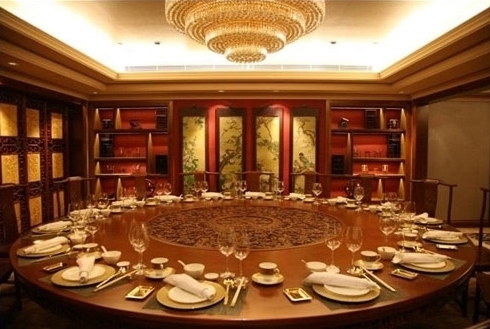Anti-waste drive facing fresh challenges
 0 Comment(s)
0 Comment(s) Print
Print E-mail Xinhua, April 15, 2013
E-mail Xinhua, April 15, 2013
China's anti-extravagance campaign faces fresh challenges as entertainment options such as private-hire restaurants and private clubs are becoming new favorites.
 |
|
Interior of a private club. [File photo] |
The People's Daily, the flagship newspaper of the Communist Party of China, published a front-page commentary in its Monday edition stating that both the revenue of upscale restaurants and red-carpet ceremonies have seen reductions due to the central government's anti-extravagance drive.
However, it said, new ways of unscrupulous wastes of government funds are emerging, with various occasions which could breed waste and corruption coming into the public spotlight.
Although it did not give any data to support these claims, the commentary noted that more attention should be paid to curb such tendencies, saying that they could not only impair the anti-waste achievements, but also discredit the Party and the government.
In the first two months of 2013, China's catering sector reported 403 billion yuan (about 65 billion U.S. dollars) in revenues, up 8.4 percent year on year, National Bureau of Statistics data showed.
But sales at medium-sized and large restaurants logged a 3.3-percent year-on-year decline in the first two months, partly as a result of the central government's frugality campaign.
Earlier this month, during China's Qingming Festival, or Tomb-sweeping Day, several cases of private use of official cars were exposed by netizens. Expenditure on government-funded vehicles, along with overseas trips and receptions, are traditionally held to be the three biggest sources of corruption and waste.
Figures from the Ministry of Finance showed that central governmental departments' expenses on vehicle purchase and maintenance reached about 5.92 billion yuan in 2011, accounting for over 60 percent of the total expenses on the three items.
In order to push forward the anti-extravagance campaign, authorities should perfect various supervision mechanisms and smooth the supervision channels for the media and public, according to the article.






Go to Forum >>0 Comment(s)